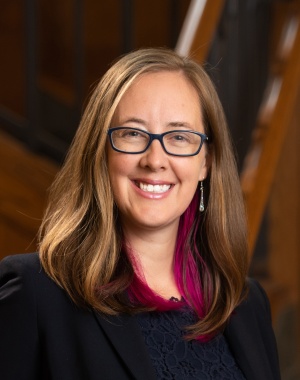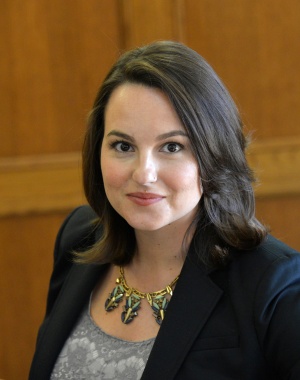
The tension between infrastructure development and a decarbonized power future
An Abundance discussion
Speaker
Rob Gramlich, Catherine Hausman, Kaitlin Raimi, Alexandra KlassDate & time
How to attend
The panel will examine several issues facing the country as two powerful forces seem to be at odds. How much power infrastructure do we need to build to decarbonize and meet growing data center and other power demand, and can it be done? Do well-intended laws and processes enacted over the last 50 years even allow large scale infrastructure development anymore? Can the development be done consistent with societal environmental and labor standards?
Speaker Bios:
Rob Gramlich is President of Grid Strategies LLC, a Washington DC-based consultancy focused on transmission and power markets for a reliable, affordable, and sustainable power system. He co-founded Americans for a Clean Energy Grid, Working for Advanced Transmission Technologies (WATT Coalition), Advancing Modern Powerlines, the Macro Grid Initiative, and the Future Power Markets Forum. Rob has been invited to testify by both parties before Congress, FERC, and state agencies. He has earned awards from FERC as Exemplar of Public Service, the Energy Systems Integration Group for contributions to market design and transmission planning, The Hill Magazine for lobbying, and the American Wind Energy Association for Technical Achievement. Rob previously oversaw transmission and power market policy for the American Wind Energy Association as SVP and Interim CEO, served as Economic Advisor to FERC Chairman Pat Wood III, and was Senior Economist at PJM Interconnection. Rob has a Master of Public Policy (MPP) degree from UC Berkeley and a BA with Honors in Economics from Colby College.
Catherine H. Hausman is an associate professor at the Gerald R. Ford School of Public Policy and a research associate at the National Bureau of Economics Research. Her work focuses on environmental and energy economics. Recent projects have looked at inequality and environmental quality, the natural gas sector's role in methane leaks, the impact of climate change on the electricity grid, and the effects of nuclear power plant closures. Her research has appeared in the American Economic Journal: Applied Economics, the American Economic Journal: Economic Policy, the Brookings Papers on Economic Activity, and the Proceedings of the National Academy of Sciences. Prior to her graduate studies, Catherine studied in Peru under a Fulbright grant. She has taught statistics, a policy seminar on energy and the environment, and a course on government regulation of industry and the environment. She holds a BA from the University of Minnesota and a PhD in Agricultural and Resource Economics from the University of California, Berkeley.
Kaitlin Raimi is an associate professor of public policy at the Ford School. As a social/environmental psychologist, her interests center on how individuals can promote or prevent sustainable behaviors and policies. She has three broad areas of research: (1) how people compare their own beliefs and behaviors to others, (2) how adopting one pro-environmental behavior affects later action, and (3) how climate change communication affects people’s understanding, behaviors, and support for climate policies and technologies.
Alexandra B. Klass is the James G. Degnan Professor of Law at Michigan Law. She teaches and writes in the areas of energy law, environmental law, natural resources law, tort law, and property law. From April 2022 to July 2023, she served in the Biden-Harris administration as deputy general counsel for energy efficiency and clean energy demonstrations at the US Department of Energy. Klass’s recent scholarly work, published in many of the nation’s leading law journals, addresses regulatory challenges to integrating more renewable energy into the nation’s electric transmission grid, siting and eminent domain issues surrounding interstate electric transmission lines and oil and gas pipelines, and applications of the public trust doctrine to modern environmental law challenges.
